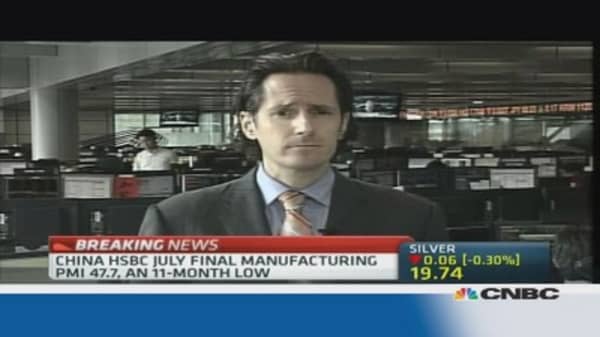The positive surprise in China's official reading on the manufacturing sector Thursday is a result of improving business sentiment on the back of Beijing's recent stimulus announcement, analysts told CNBC.
The government's Purchasing Managers' Index (PMI), which rose to 50.3 in July from 50.1 in June and beating market expectations of 49.9 according to a Reuters poll, also marks the first sign of stabilization in the world's second largest economy, they added.
The key 50 threshold demarcates expansion from contraction.
(Read more: More bad news for China? Factory profit growth eases)
"Since mid-July Premier Li has made it very clear that his government will try to achieve the 7.5 percent growth target with some policy easing measures including more investment in infrastructure fixed asset investment," Ting Lu, head of Greater China economics at Bank of America Merrill Lynch wrote in a note.
"So the official PMI survey which was conducted late July could be impacted by the more positive sentiment," he said.





